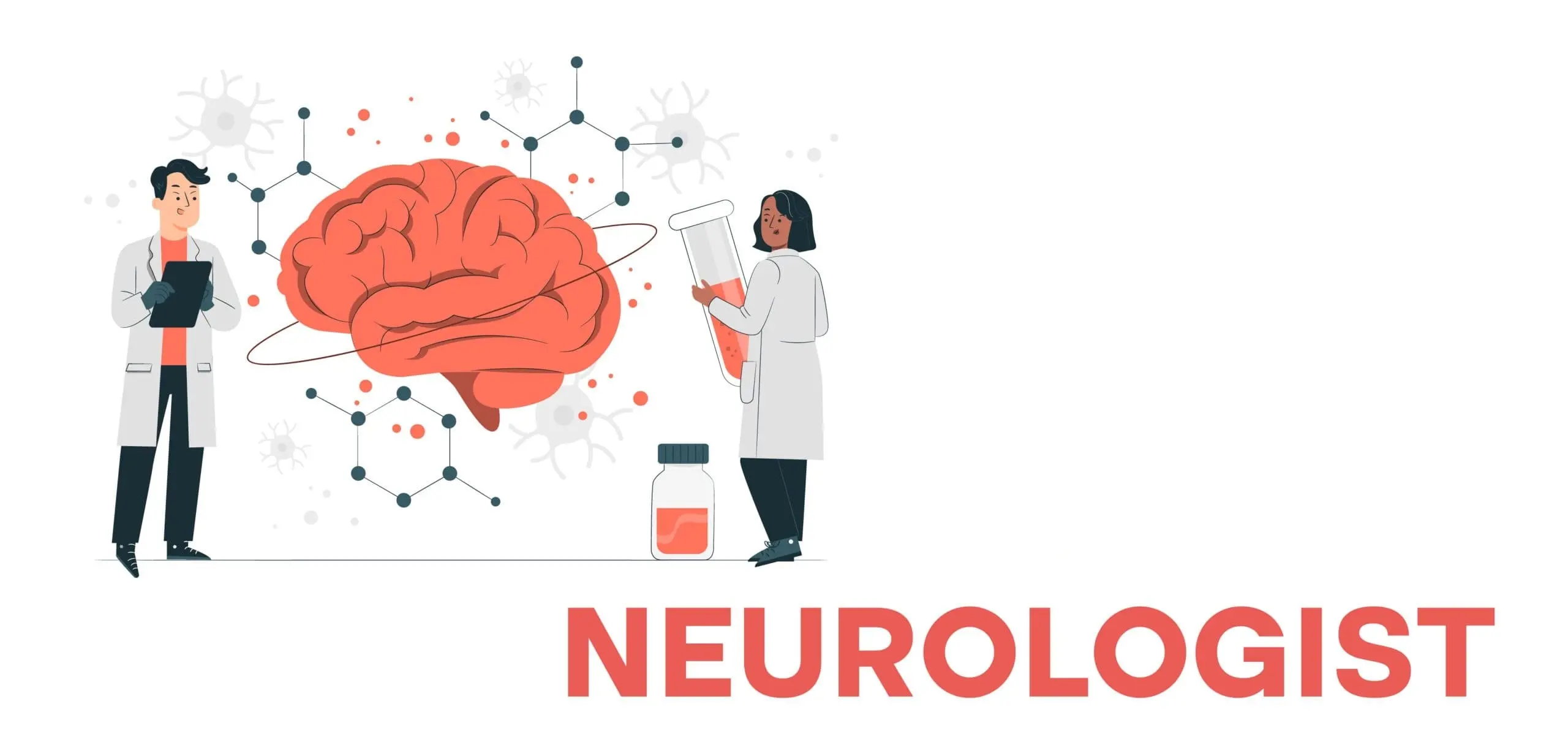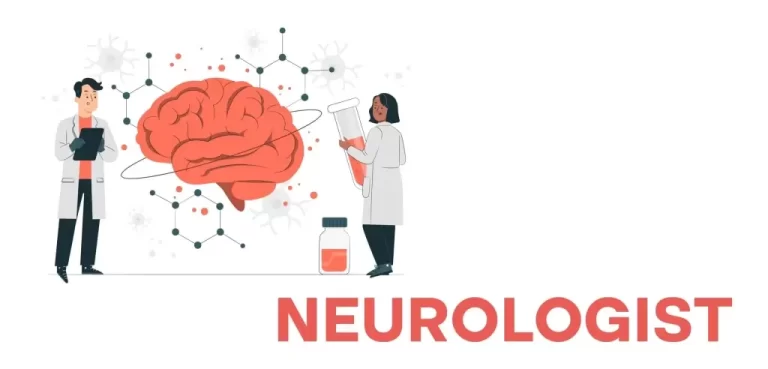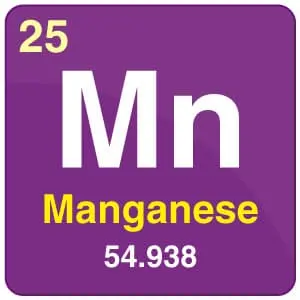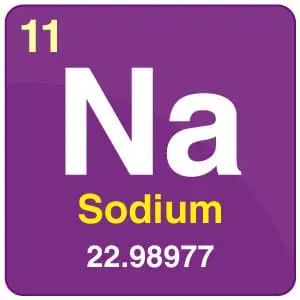Neurologists
What is a Neurologist?
Medical experts who specialize in the diagnosis and treatment of disorders affecting the neurological system are known as neurologists. One may visit a neurologist for everything from movement difficulties to migraines and sleep issues.
If a general practitioner feels that a patient exhibits symptoms of a neurological condition, they may refer them to a neurologist. A wide range of ailments are categorized as neurological disorders, such as headaches, and diabetic neuropathy.
Alzheimer’s disease, and nerve damage. The function of a neurologist is covered in this article, along with the ailments they treat, the treatments they carry out, and the circumstances under which a patient could see one of these specialists.
The diagnosis, treatment, and management of illnesses pertaining to the brain and nervous system (brain, spinal cord, and nerves) are the domain of a neurologist. A neurologist is knowledgeable in the disorders, functions, and architecture of the neurological system.
Your body’s central nervous system is its command center. It governs every thought, emotion, and action you have, including how your arm moves and how quickly your heart beats.
What Do Neurologists Do?
A physician with expertise in the assessment, diagnosis, and treatment of disorders affecting the neurological system is known as a neurologist.
There are two components to the nervous system. Reliable Source:
1 the brain and spinal cord are referred to as the central nervous system (CNS)
2 while all of the nerves outside of the CNS are referred to as the peripheral nervous system (PNS).
What do Neurologists Specialize In?
Since the nervous system is so intricate, many neurologists specialize in treating members of particular demographics or those with particular neurological conditions.
Neurologists must undergo a 4-year residency that comprises one year of study in general internal medicine or pediatrics and three years of training in neurology.
After graduating from four years of medical school to become a doctor. A further year or three of specialist training is often completed by some neurologists.
The following are a few subspecialties in the discipline of neurology:
- pediatric or child neurology
- neurodevelopmental disabilities
- neuromuscular medicine
- hospice and palliative care neurology
- pain medicine
- headache medicine
- sleep medicine
- vascular neurology
- autonomic disorders
- neuropsychiatry
- brain injury medicine
- neurocritical care
- epilepsy
- movement disorders
- neuro-oncology
What Conditions Do Neurologists Treat?
Neurologists diagnose and treat disorders of the nervous system, including issues with the brain, spinal cord, and nerves. Among these prerequisites are:
- stroke
- epilepsy
- headaches and migraine
- brain tumors
- brain aneurysms
- peripheral neuropathy
- sleep disorders
- neurological illnesses, including Alzheimer’s and Parkinson’s
- Neuromuscular disorders, such as myasthenia gravis, and muscular dystrophy
- An inflammatory neurological condition known as multiple sclerosis (MS)
- illnesses that affect the neurological system, including HIV, meningitis, and encephalitis
Neurologists will occasionally assess hospitalized patients who have undergone surgery or other medical issues if they present with a new symptom, such as a seizure or decreased awareness.
These neurological assessments might be useful in determining the prognosis or chance of recovery from a serious disease.
What Can a Neurologist Diagnose?
Numerous disorders affecting the neurological system can be diagnosed by neurologistsTrusted Source, including:
- stroke
- chronic migraine
- meningitis
- epilepsy
- multiple sclerosis
- Parkinson’s disease
- autism
- dementia and Alzheimer’s disease
What Procedures Do Neurologists Perform?
Neurologists use a variety of diagnostic and therapeutic techniques to address neurological disorders.
Among these methods are the following:
Lumbar puncture
A spinal fluid sample can be obtained by a lumbar puncture, which a neurologist can do. The following conditions might be diagnosed with the use of this procedure: Reliable Source:
- meningitis
- encephalitis
- inflammation of the spinal cord
- leukemia
- autoimmune diseases, such as MS
- dementia
- bleeding in the brain
Lumbar punctures are another tool that neurologists might utilize to treat spinal cord injuries. With a lumbar puncture needle, they can administer cancer medicines, antibiotics, or anesthetics.
Electromyography
Electromyography (EMG) is a tool used by neurologists to evaluate an individual’s muscular response to electrical stimulation from motor neurons, the nerves responsible for controlling the movement of muscles.
In order to gauge nerve activity, a neurologist will often also conduct a nerve conduction study (NCV), which involves evaluating an individual’s reaction to superficial electric stimulation.
A specialist with specialized training inserts tiny needles, known as electrodes, into the muscle to perform an EMG.
These electrodes capture the various electrical activity that happens in muscle tissue while it is moving and when it is not. An electromyogram, or EMG machine record, is created as a result of this action.
Neurologists can identify neuromuscular disorders like ALS and my asthenia gravis using the findings of an EMG.
This test measures muscular electrical activity and is used to identify abnormalities of the nerves and muscles, spinal nerve root compression, and disorders of the motor neurons, including amyotrophic lateral sclerosis.
Electroencephalogram
Electroencephalograms (EEGs) are tools used by neurologists to monitor and record electrical activity in the brain. An EEG can pick up on the electrical impulses that brain neurons use to communicate with one another.
Brain wave patterns can also be monitored using an EEG. An EEG technician will apply electrodes to the subject’s head. The technician can observe or print designs that are created from electrical impulses on a screen or sheet of paper by connecting these electrodes to a computer.
Neurologists can diagnose certain disorders, such as the following, using EEG findings to detect aberrant electrical activity in the brain:
- epilepsy
- seizures
- brain tumors
- sleeping problems
- coma, or unresponsiveness
Tensilon test
An uncommon neuromuscular condition called myasthenia gravis causes the arms and legs to deteriorate. Myasthenia gravis can be diagnosed by a neurologist using the Tensilon test. Acetylcholine is a neurotransmitter that causes muscular activity.
Tensilon is the brand name for edrophonium, a medication that stops its breakdown. Muscular tiredness and reduced muscular mobility are the results of the immune system attacking acetylcholine receptors in the muscles due to myasthenia gravis.
A small quantity of Tensilon will be injected into the bloodstream by a neurologist during a Tensilon test. After that, they’ll ask them to try a variety of motions to see whether their muscular strength increases.
Every time the patient experiences fatigue, the neurologist will continue to give them dosages of Tensilon. A person is most likely to develop myasthenia gravis if they see that their strength recovers following each Tensilon injection.
A neuromuscular disorder called myasthenia gravis, which is characterized by muscle weakening, can be diagnosed with the Tensilon test. Tensilon (edrophonium) injections are utilized in the test, and your muscular strength is assessed to see if myasthenia gravis is the reason for your weakness.
Other tests
The following tests Trusted Source can be used by a neurologist to assist in the diagnosis of neurological disorders:
- laboratory procedures such as analysis of the blood and urine.
- imaging examinations, including PET, MRI, CT, and ultrasounds
- genetic testing
- biopsy
- angiography
What Happens During Your Initial Visit with a Neurologist?
Tests for memory, coordination, muscular strength, eye health, and vision are all part of a neurological examination. Although they normally don’t hurt, the tests might be slightly uncomfortable.
Nothing special has to be done in advance of a person’s initial neurology appointment. The neurologist, Trusted Source, may be involved in the appointment:
- inquiring about any symptoms, past or present medical issues, and prescription drugs
- evaluating a person’s posture, gait, ease of movement, and balance to look for any obvious symptoms of a disease
- doing a physical examination to take blood pressure, pulse, and listen to the heart and lungs
- enquiring about bowel and urine movements, as they might reveal the health of the autonomic nerve system.
Following this preliminary examination, a neurologist could carry out a number of evaluations, including:
Tests of the cerebral nerves: These examine how well the brain’s nerves work, which might impact senses. In an eye exam, people could have to recognize certain smells as well as letters or numbers.
Tests of motor skills and coordination: A neurologist could ask patients to write, tap their fingers, spin around, or move their limbs in a certain manner. Individuals could also undergo a reflex test, which involves tapping their knee to gauge their reaction.
Sensation tests: A neurologist may do these to assess a patient’s ability to react to stimuli like touching warm or cold water containers or soft fabric.
Cognitive ability tests: In order to assess a patient’s memory, a neurologist may ask them questions about their occupation, the date, and the season.
Tests of concentration can also be administered in math and language. A neurologist may administer some non-standard cognitive skill tests.
Including the Montreal Cognitive Assessment (MoCA) or the Mini-mental State Examination (MMSE) if the patient exhibits cognitive impairment during the neurological evaluation.
When to Consult a Neurologist
If a patient exhibits signs of a neurological disorder, such as those listed below, their physician may recommend that they see a neurologist.
- frequent or severe headaches
- muscle weakness
- confusion
- dizziness
- loss of coordination
- partial or complete paralysis
- alterations in perception that impact touch, vision, smell, or taste
Neurologists vs. neurosurgeons
Neurosurgeons and neurologists both treat patients with disorders affecting the neurological system. But neurologists do not do surgery; neurosurgeons do.
After completing medical school, neurosurgeons go to a 6- to 8-year neurosurgery residency, which consists of a 1-year general surgery internship.
While some neurosurgeons specialize in more sophisticated operations, all neurosurgeons are certified to operate on the spine and brain. A person’s primary practitioner will often recommend them to a neurosurgeon or neurologist.
When surgery is the best course of action, a neurologist may recommend a neurosurgeon, and vice versa when neurological treatment is necessary for the patient.
Summary
Medical disorders that impact the neurological system are diagnosed and treated by neurologists.
A customary procedure In the event that a patient exhibits symptoms indicative of a neurological condition, such as:
- persistent or severe headaches
- muscle weakness
- confusion
- dizziness
- loss of coordination
- partial or complete paralysis
Neurologists are skilled in a variety of techniques that aid in the diagnosis and treatment of neurological disorders. A person’s neurologist or physician will send them to a neurosurgeon, though, if surgery is necessary.
FAQ
What does a neurologist do?
A neurologist is a medical professional with a focus on neurology. A neurologist addresses conditions affecting the nerves, brain, and spinal cord, including cerebral vascular illnesses, including stroke. disorders that cause demyelinating of the central nervous system, such as sclerosis.
Should I see a neurologist for migraines?
If your headache goes gone on its own or goes away with rest or self-care, you may not need to see a neurologist. But if it’s so crippling that it interferes with your everyday activities, there’s a chance it’s the result of other underlying disorders that call for a comprehensive assessment from a physician.
Can a neurologist treat depression?
As a result, it is evident that a neurologist may be very helpful in the identification and management of depression. Although they are unable to offer direct psychological care, they can refer patients to qualified mental health providers for additional assessment and care.
Is a neurologist good for headaches?
If so, you ought to think about visiting a neurologist. It is a fact that many people are unaware of: neurologists are experts in treating headaches and migraines. Indeed, they could be able to provide you with headache and migraine relief that you never would have believed was possible.
Is depression a neurology?
Goal of the evaluation A reciprocal relationship between depression and neurological disorders is supported by clinical research. Here, we examine the most current research that lends credence to the theory that serious depression is a brain disease that may be brought on by neurological conditions.
What are neurologist problems?
Many conditions fall under the category of neurological difficulties, including epilepsy, learning disabilities, neuromuscular diseases, autism, attention deficit disorder, brain tumors, and cerebral palsy, to mention a few.
When should I see a neurologist?
In case you or a loved one exhibits inexplicable symptoms that can be associated with the nervous system or brain, your physician might suggest a neurological examination conducted by a professional. Neurologists are doctors who specialize in treating conditions affecting the muscles, peripheral nerves, brain, and spinal cord.







8 Comments